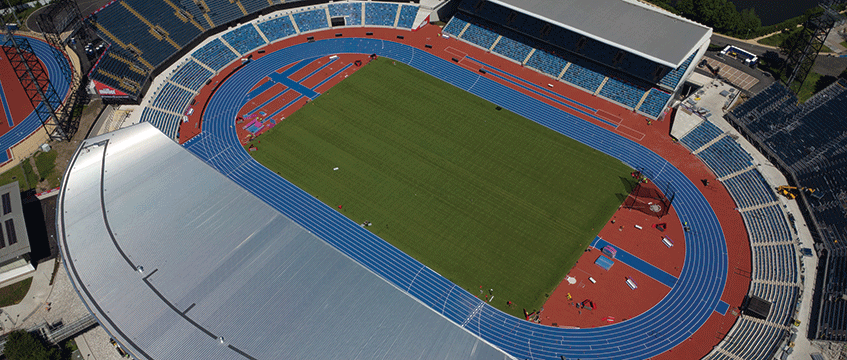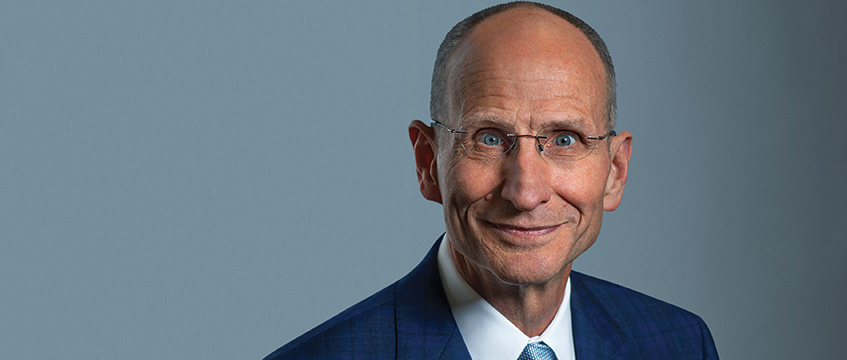Confident, bold, fierce: how the Commonwealth Games has transformed Birmingham
“This city is now confident and this city is now hungry and ambitious to see inclusive growth,” says Birmingham City Council chief executive Deborah Cadman, as the Commonwealth Games kicks off in the city.
And she’s not wrong. Cadman, who officially took up the role as chief executive earlier this month, is now commanding a city that has found its place. Thanks in part to the focus of hosting the Commonwealth Games.
According to exclusive data from EG, almost £5bn of investment and close to 20m sq ft of occupational activity has occurred in Birmingham since it won the bid to host this year’s Games in late 2017.
“This city is now confident and this city is now hungry and ambitious to see inclusive growth,” says Birmingham City Council chief executive Deborah Cadman, as the Commonwealth Games kicks off in the city.
And she’s not wrong. Cadman, who officially took up the role as chief executive earlier this month, is now commanding a city that has found its place. Thanks in part to the focus of hosting the Commonwealth Games.
According to exclusive data from EG, almost £5bn of investment and close to 20m sq ft of occupational activity has occurred in Birmingham since it won the bid to host this year’s Games in late 2017.
But this is just the start of the city’s golden era, says Cadman.
“The legacy of having the eyes of the world on the city and with us being able to present the brilliant opportunities in a way which we haven’t before will be a fantastic opportunity for the city,” she says. “A lot of that investment was on the back of the Commonwealth Games and we expect to see huge amounts of investment as a result of the Games. We are really ambitious and confident that the value of having the Commonwealth Games in the city, in addition to all the investment that’s been made, will be phenomenal in attracting additional global investment.”
EG’s figures show a total of £4.8bn of investment in the city since December 2017. And 2022 has started strongly, with almost £680m of deals completed already.
Activity in the offices and residential sectors have led the way, representing £1.8bn and £1bn of total investment since December 2017, respectively.
Cadman is keen to point out that it’s not all about the big figures, but granular stats too: the 5,000 homes delivered at Perry Bar, an area of the city desperately in need of love, care, attention and regeneration; the £350m of contracts that went to local businesses; and the 40,000 new jobs generated through the same, many of which Cadman is confident will endure beyond the 11 days of the Games.
There is certainly growth in workspace as a result of the Games, with 19.3m sq ft of space transacted over the 4.5-year period, according to EG data. More than 7m sq ft of that activity has been in the offices sector, where rents have increased from around £18.28 per sq ft to £20.10 per sq ft, with the average sitting at £18.94 per sq ft.
“Whether or not levelling up is called levelling up, we are on this trajectory now,” says Cadman. “We are really fierce about the way in which we are going to be relentless about levelling up our communities and our place. A lot of that will be driven by the boldness and confidence that has come out of hosting the Commonwealth Games.”
The council is in the midst of a major rebrand of the city, moving it away from its brutalist image to one of bold ambition. Its recently signed off Corporate Plan 2022-2026 set outs its vision to solidify Birmingham as a “thriving, young and diverse global city” and the “beating heart” of the UK.
Maximising the benefits
Key to that plan is development, regeneration and improvement of place. The council wants to create a Birmingham that maximises the benefits of the Games to create inclusive economic growth and tackle unemployment in inequalities, it wants to make the city safer, increase affordable housing and create a city that encourages activity, an urban environment that promotes walking, cycling and enjoying green spaces.
Since winning the bid for the Games, applications for more than 52m sq ft of development have been submitted to the council, according to EG analysis, with consent secured for some 45m sq ft.
Residential development takes the lion’s share of that development, accounting for 28m sq ft of applications and 23m sq ft of permissions. Offices take the next biggest slice at 15m sq ft and 7m sq ft, respectively.
“When I use the expression ‘confident, bold and fierce’, those are conversations that we have with potential investors,” says Cadman. “We’ve been very clear that if you want to come and invest in this city, of course we want your investment, but we want investment that is going to be long term and sustainable and inclusive.
“It’s not just one and done and make your profit and bounce. It is about you joining us on this journey of creating a really inclusive, vibrant, sustainable place. We want to have relationships with our investors rather than pure partnerships.”
To send feedback, e-mail samantha.mcclary@eg.co.uk or tweet @samanthamcclary or @EGPropertyNews
Image © Shutterstock











